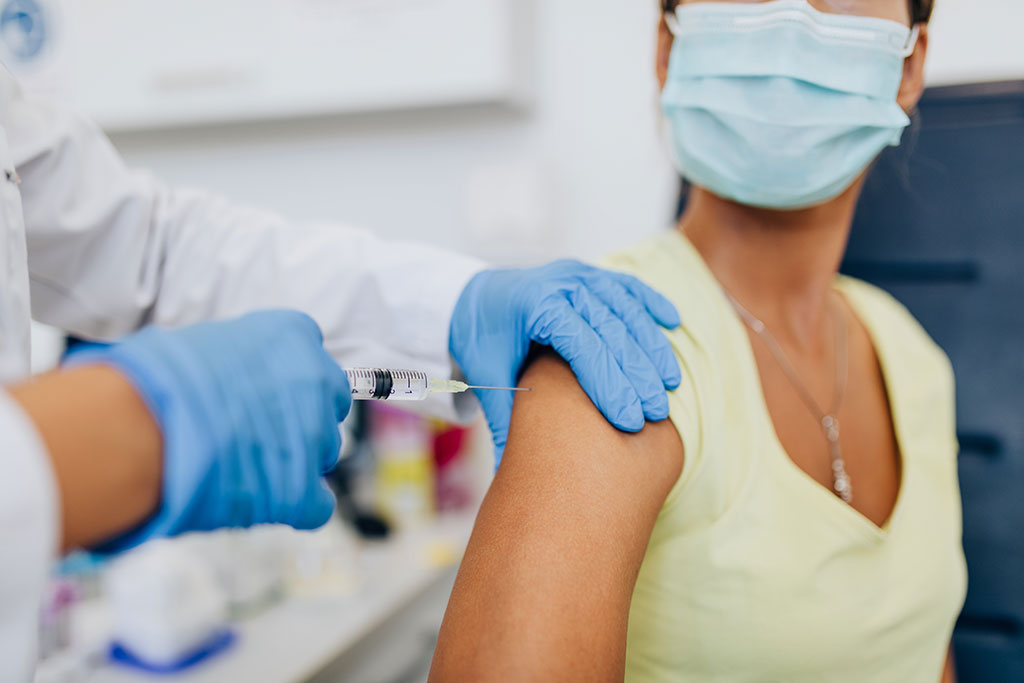
On January 25 2020, the Therapeutic Goods Administration (TGA) approved Australia’s first COVID-19 vaccine. Comirnaty® is now provisionally approved for active immunisation to prevent COVID-19, caused by SARS-CoV-2, in individuals aged 16 years and older. Several other COVID-19 vaccines have been granted a provisional determination which means they are eligible to apply for provisional registration.
Table 1. COVID-19 vaccines in the provisional approval pathway
| Sponsor | Name | Vaccine type | Current status |
| Pfizer | BNT162b2 [mRNA] (Comirnaty®) | Messenger RNA | Provisional approval |
| Biocelect (on behalf of Novavax) | NVX-CoV2373 | Protein sub-unit | Provisional determination |
| Janssen-Cilag | Ad26.COV2.S | Viral vector | Provisional determination |
| AstraZeneca | ChAdOx1-S [recombinant] | Viral vector | Provisional determination |
Comirnaty® is a messenger RNA vaccine. This vaccine provides instructions for cells to produce the SARS-CoV-2 spike antigen. The spike antigen is a protein embedded in the SARS-CoV-2 virus that facilitates its entry into human cells. Following administration of this vaccine, the body temporarily makes its own version of the spike protein. This protein will be recognised as foreign and trigger the production of neutralising antibodies and cellular immune responses. Messenger RNA is not very stable and is readily degraded in the body. Therefore, the RNA in Comirnaty® is formulated in lipid nanoparticles to protect it from degradation and facilitate its entry into host cells. However, once the RNA has been used, it is quickly destroyed by the cell.
The TGA conducted a thorough and independent review before granting provisional approval to this vaccine. This review concluded that the vaccine meets the high safety, efficacy, and quality standards required for use in Australia. However, as the decision relied on short-term data, ongoing clinical trials and post-marketing assessment must provide evidence of long-term efficacy and safety to ensure continued approval.
A multinational, placebo-controlled clinical trial involving over 43,000 participants demonstrated the short-term safety and efficacy of Comirnaty®. Subjects were randomly assigned in a 1:1 ratio to receive two doses of either the vaccine or a saline placebo given 21 days apart. This trial determined the overall vaccine efficacy to be 95%. This corresponds to eight cases of COVID-19 occurring in the vaccine population, compared to 162 in the placebo group. There were no clinically meaningful differences in efficacy for participants at risk of severe COVID-19, including those with asthma, a body mass index ≥ 30, chronic pulmonary disease, diabetes mellitus, or hypertension. Ongoing clinical trials are required to determine the duration of protection afforded by this vaccine.
Safety over the median two month follow-up period was similar to other viral vaccines. The more common adverse events include pain at the injection site, fatigue, and headache. These were typically transient and of mild or moderate severity. The incidence of serious adverse events was low and occurred in the vaccine and placebo groups at comparable rates.
Messenger RNA vaccines are more fragile than traditional vaccines and require different storage conditions. The Comirnaty® vaccine should be stored in the original package at -90°C to -60°C. Once removed from the freezer, the unopened vaccine can be stored for up to five days at 2°C to 8°C, and up to two hours at temperatures up to 30°C. Once thawed, the vials should not be re-frozen. Comirnaty® is presented as multi-dose vials which must be diluted before use, as described in the product information. Patients are to receive two intramuscular doses at least 21 days apart.
While the approval of this vaccine relies on limited data, it is worth noting that Comirnaty® has been authorised for use in many other countries and millions of doses have already been administered worldwide. The TGA will continue to monitor the safety of this vaccine in Australia and overseas. Batch assessment is also required for each batch before it can be supplied in Australia.
Initial supplies of COVID-19 vaccines will be limited. The Australian COVID-19 Vaccination Policy provides details of the Australian approach to vaccination, including the responsibilities of the Australian, State, and Territory governments. Some of the key points are described below:
- COVID-19 vaccines will be available for free to all Australian citizens, permanent residents, and most visa-holders;
- The Australian government will be responsible for ensuring appropriate logistics and storage chains are in place for each vaccine type;
- Initial vaccine supplies will be directed towards priority groups, which may vary depending upon the vaccine candidate;
- Preliminary priority groups are those with an increased risk of exposure (e.g. health and aged care workers), those with an increased risk of developing severe disease or outcomes from COVID-19 (e.g. people with chronic lung disease), and people working in services that are critical to societal functioning (e.g. emergency services personnel); and
- As vaccine supplies improve, as many Australians as possible will be encouraged to receive a vaccination.
International labels will be used on COVID-19 vaccines during the initial global rollout to expedite their distribution. This means that some Australian-specific information may be absent from the vaccine labels of early lots. Healthcare professionals should review the Australian product information for further information on each COVID-19 vaccine as they become approved.
References:
- Australian Government. Australian COVID-19 Vaccination Policy. Canberra: Department of Health; 2020.
- Australian Technical Advisory Group on Immunisation. Preliminary advice on general principles to guide the prioritisation of target populations in a COVID-19 vaccination program in Australia. ATAGI; 2020.
- Comirnaty® (BNT162b2 [mRNA]) Australian approved product information. Sydney: Pfizer Australia. Approved January 2021.
- Polack FP, Thomas SJ, Kitchin N, Absalon J, Gurtman A, Lockhart S, et al. Safety and Efficacy of the BNT162b2 mRNA Covid-19 Vaccine. N Engl J Med. 2020; 383: 2603-15.
Subscribe Knowledge Centre Updates
Enter your details to receive Knowledge Centre updates
